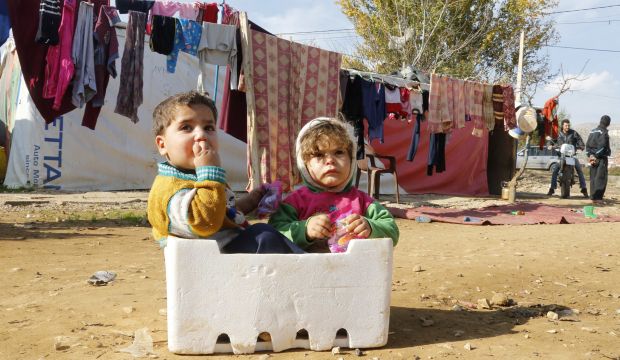The crisis of refugees—Syrians, Iraqis, Yemenis, and others—is everyone’s responsibility amid the international community’s failure to support them. No one, including Gulf countries, has an excuse to not help refugees displaced by conflicts and crises. The Arab Gulf states have recently faced some heavy criticism on this issue, but some of the critics have aims that are completely irrelevant to the humanitarian side of the situation.
Gulf countries must of course accommodate more people and grant more care to Arabs and Africans fleeing wars in their countries. However, it is important to look at the entire picture, and not just rely on people who seek to serve their own interests, or reporters who only know part of the truth.
A large percentage of the funds spent by international organizations and received by governments who host refugees, such as Lebanon and Jordan, come from Gulf countries. The latter are thus one of the major funders of about 3 million Syrian and Yemeni refugees in different countries.
Almost all these funds spent on refugees come from Gulf governments, after charities and individuals decreased their activity due to suspicions over beneficiaries and fears that groups such as the Islamic State of Iraq and Syria (ISIS) may be making use of the financial aid.
As to hosting refugees, ever since the Arab Spring erupted, Gulf countries have received thousands of refugees via family reunification and fast-track employment programs. Riyadh has exempted Syrians from renewing their visas and from labor permits. There are currently more than 500,000 Syrians in Saudi Arabia, representing the third-largest foreign community in the country after Egyptians and Yemenis.
The number of Yemenis in the Kingdom has increased to over 1 million since the war erupted in their country. All Yemeni refugees and Yemenis who illegally entered the Kingdom have been granted legal residencies that allow them to stay and work in the country.
The number of refugees Europe has agreed to take in remains humble compared with the numbers who have sought refuge in Jordan, Lebanon, and Turkey. And it is less than the number of refugees who have quietly found their way to Gulf countries.
Despite this, we must thank countries such as Germany for their humanity, and note that Germans have always been among the most welcoming people to refugees since the Lebanese Civil War erupted in the 1970s. Gulf countries must provide more space for refugees via the system that reunifies Syrians with their families who reside there, and by allowing more Yemenis to seek refuge there in addition to the 1.5 million already present.
Gulf countries are not selfish as some claim. They host some of the biggest foreign communities. All six Gulf countries have opened their doors for these communities to live and work, and some of these foreigners have fled persecution and wars from Sudan, Somalia, Eritrea, and Afghanistan. These people were neither housed in tents nor categorized as refugees, and they have mingled freely within society. This year around 1.5 million people, who found their way into Saudi Arabia mostly from troubled countries, were granted residencies and work permits.
When taking into consideration the percentage of foreigners to citizens in most Gulf countries, there is a dilemma that prevents receiving more refugees. Foreigners make up more than 80 percent of the population in countries like the United Arab Emirates and Qatar, around half of Kuwait’s population, some 40 percent in Saudi Arabia, and around a third in Bahrain.
You do not see such percentages in other countries, including in Europe, which complains about the number of foreigners on its lands. The percentage of foreigners in Britain is 8 percent, and it is a similar percentage in Germany and Greece.
Trading accusations, and some people’s exploiting a humanitarian cause to achieve personal or political aims, will preoccupy everyone with disputes instead of dealing with the crisis.
